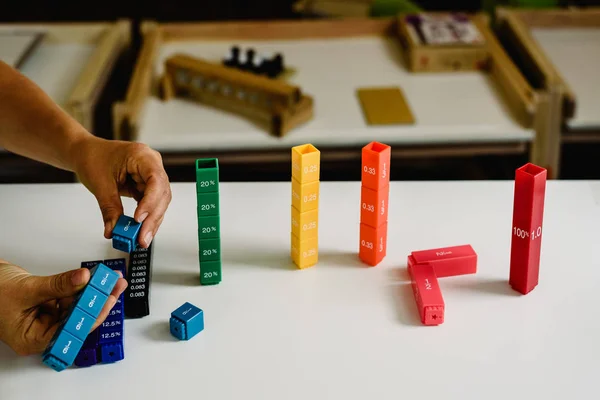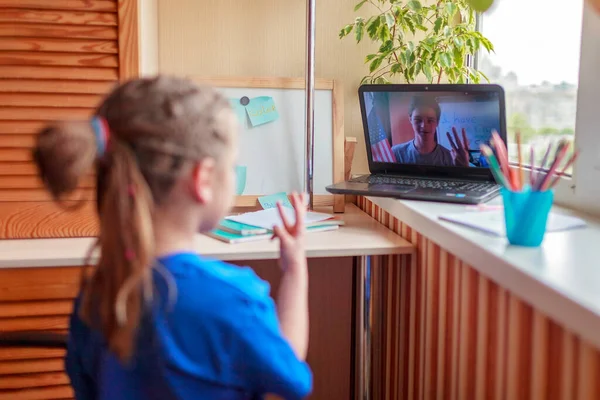Starting a student exchange can feel like stepping into a whole new world where everything from classroom rules to casual conversations works differently than back home. The good news is that thousands of students successfully navigate this transition every year, and most find that fitting in becomes much easier once they know what to expect. While every exchange experience is unique, there are proven strategies that can help you build friendships, succeed academically, and feel genuinely at home in your new environment.
Here is a list of 16 practical tips that will help you fit in during your student exchange and make the most of this incredible opportunity.
Join extracurricular activities immediately

Getting involved in sports teams, clubs, or other after-school activities is one of the fastest ways to meet people who share your interests. American high schools offer everything from football and basketball to debate clubs and art groups, giving you plenty of options regardless of your skill level.
Even if you’ve never played a particular sport before, joining a team creates instant opportunities to bond with teammates and develop camaraderie. The shared experience of practices, games, or club meetings gives you natural conversation starters and helps you feel like part of a group right away.
Master the art of small talk

Americans love friendly, casual conversations, even with people they don’t know well. Simple phrases like ‘What do you like to do for fun?’ can help break the ice and get conversations going. People in the U.S. are generally friendly with strangers and might strike up conversations in grocery stores or elevators as if they’ve met before.
Practice responding to common greetings like ‘How are you?’ with a simple ‘I’m good, thanks! How about you?’ rather than giving a detailed response. Remember that small talk is often just a way to be polite and show interest, not necessarily an invitation to share your life story.
Like Travel Pug’s content? Follow us on MSN.
Say yes to social invitations

When people from school ask you to go out on weekends or after school, even just for coffee, say yes — and they’ll likely ask you again. This might mean attending football games on Friday nights, going to movies, or hanging out at someone’s house.
Even if you don’t understand all the rules of American football, attending games is a fun, low-pressure way to meet peers and soak up school spirit. Each invitation you accept opens doors to meeting more people and shows that you’re interested in being part of the social scene.
Be the first to introduce yourself

Everyone is looking for friends, so don’t be afraid to make the first move — if you see someone you want to be friends with, go up and introduce yourself. Making friends starts with a warm and approachable demeanor, so wear a friendly smile and don’t be afraid to initiate conversations.
This gets easier with practice, and most students are genuinely curious about exchange students and eager to learn about your background. Starting conversations might feel intimidating at first, but remember that your classmates are often just as interested in getting to know you as you are in meeting them.
Learn proper classroom etiquette

Good classroom etiquette involves arriving on time, which demonstrates respect for the teacher and fellow students. Always raise your hand before speaking to ensure the classroom doesn’t descend into chaos with multiple people talking at once.
When addressing professors, use formal titles like ‘Professor Jones’ unless instructed otherwise, as this demonstrates respect and aligns with classroom expectations. American classrooms tend to encourage more participation and discussion than in some other countries, so don’t be afraid to engage actively in class discussions when appropriate.
Like Travel Pug’s content? Follow us on MSN.
Understand personal space boundaries

Americans highly value personal space, so maintaining an arm’s length during conversations generally ensures you’re in a safe zone. When greeting someone you don’t know, shake hands with them and smile — don’t initiate a hug or kiss, as this isn’t recognized as a standard greeting in U.S. culture.
Always ask for permission before hugging or touching someone, as uninvited physical contact can cause discomfort. Understanding these boundaries helps you avoid accidentally making others uncomfortable and shows that you respect cultural norms.
Be punctual for everything

Being on time is very important in U.S. culture, and showing up punctually for classes, social events, family dinners, or team practices is seen as a sign of respect for others.
Arriving on time shows respect and helps you fully participate in activities. If you know you’ll be running late, let someone know in advance — this is considered polite and shows that you value their time. If you know you’ll be late, let someone know in advance as this is considered polite and shows that you value their time.
Share your culture enthusiastically

Encourage your student to share their culture with their peers — whether through joining an international club or teaching friends about favorite foods, sharing what makes them unique can be a great conversation starter. Bring photos from home, teach classmates phrases in your language, or offer to cook a traditional dish for your host family.
Americans are generally very curious about other cultures and will appreciate learning about your background. This also gives you something unique to contribute to conversations and helps you stand out in a positive way.
Like Travel Pug’s content? Follow us on MSN.
Don’t limit yourself to other exchange students

While you will naturally have a lot in common with other exchange students due to shared experiences, don’t limit your friendships to them — one of the most enriching aspects of your exchange is connecting with locals. When you think back on your exchange experience, you’ll certainly want American friends to be part of those cherished memories.
Exchange students can definitely provide support and understanding, but building relationships with local students gives you deeper insights into the culture and helps you practice English more effectively. Try to maintain a balance between both groups.
Practice conversation starters at home

For shy students or those still building English skills, starting conversations can be intimidating, so practice conversation starters at home to feel more confident. Work with your host family to rehearse common scenarios like introducing yourself, asking about weekend plans, or discussing hobbies.
Having a few go-to phrases ready can boost your confidence in social situations. Remember that most people understand you’re adjusting to a new language and culture, so they’ll be patient if you need a moment to find the right words.
Attend school events regularly

School events, from sports games to dances to theater productions, offer regular opportunities for students to bond and are the heart of high school social life. These events provide natural conversation topics and show that you’re interested in being part of the school community.
Even if the event itself isn’t something you’d normally attend, going shows school spirit and gives you shared experiences to discuss with classmates later. Plus, these events often have a casual, fun atmosphere that makes meeting new people easier.
Like Travel Pug’s content? Follow us on MSN.
Be open about cultural differences

Try to say sorry and explain cultural differences when you did something wrong because of misunderstanding about customs — people here are friendly and open and will understand after your explanation. If your student has habits that might be off-putting to their peers, gently explain the cultural norms and help them adjust — small shifts can make a big difference.
Don’t be embarrassed about making cultural mistakes; instead, use them as learning opportunities and chances to educate others about your background. Most Americans appreciate honesty and will respect your efforts to adapt.
Balance home and host country connections

Help your student by encouraging them to set a designated time of day or week to update and connect with family and friends back home, so they can be more present in their American life during all other times. It’s especially important to stick to a communication schedule during the challenging culture shock period, even when it’s hard.
While staying connected with home is important for emotional support, spending too much time on social media or video calls can prevent you from fully engaging with your new environment. Find a healthy balance that keeps you grounded without holding you back.
Learn dining and social etiquette

Most people in the U.S. eat three times a day, and dining etiquette includes cutting up large pieces of food before eating, except for pizza, burgers, and sandwiches, which are often eaten with hands. When eating at a restaurant, you’re expected to leave your server a 15% to 20% tip, as they are primarily paid with tips.
When invited to dinner at someone’s home, it’s polite to bring a small gift such as flowers or dessert. These small details might seem minor, but they show that you understand and respect local customs.
Like Travel Pug’s content? Follow us on MSN.
Connect with different age groups

In the United States, it’s common for high school students to form friendships with peers from different grades, so don’t limit yourself to your own grade level — be open to connecting with teens who are both older and younger. Older students can offer valuable advice about navigating school and planning for the future, while younger students might appreciate your international perspective.
These diverse friendships can offer unique perspectives and experiences. Having friends across different grades also expands your social network and gives you more opportunities to find people who share your interests.
Stay patient during the adjustment period

Struggles and difficulties are inevitable for international exchange students, but maintaining an open mind and embracing available resources and opportunities leads to eventual self-accomplishment. Some people may not want a deep friendship because they know you’ll return to your home country, but don’t let yourself down and keep looking for real friends — you will find them.
The first few weeks can be especially challenging as you navigate new social dynamics, academic expectations, and cultural differences. Remember that culture shock is temporary, and most exchange students find that things become much more comfortable after the first month or two.
The exchange student advantage

What makes the modern exchange experience so transformative is how it bridges the gap between global awareness and local belonging. Students who participate in cultural exchange programs demonstrate higher levels of cognitive flexibility, creative thinking, self-confidence, and intercultural sensitivity compared to their peers who haven’t had such experiences.
The challenges you face today — from mastering small talk to understanding classroom dynamics — are building skills that will serve you throughout your life. By adapting to a new culture, you develop valuable abilities like cross-cultural communication, adaptability, and empathy that are highly sought after in today’s globalized world. Your exchange experience isn’t just about fitting in; it’s about growing into a more confident, culturally aware person who can thrive anywhere in the world.
Like Travel Pug’s content? Follow us on MSN.

- 20 Best Beach Towns in the Carolinas
- 13 Destinations Where Tourists Regularly Regret Their Trip
- 20 Things You Actually Get in First Class
- 20 Small Airports With Aviation Museums
- 20 Places in the U.S. That Are Perfect for a Reset Trip
Like Travel Pug’s content? Follow us on MSN.
